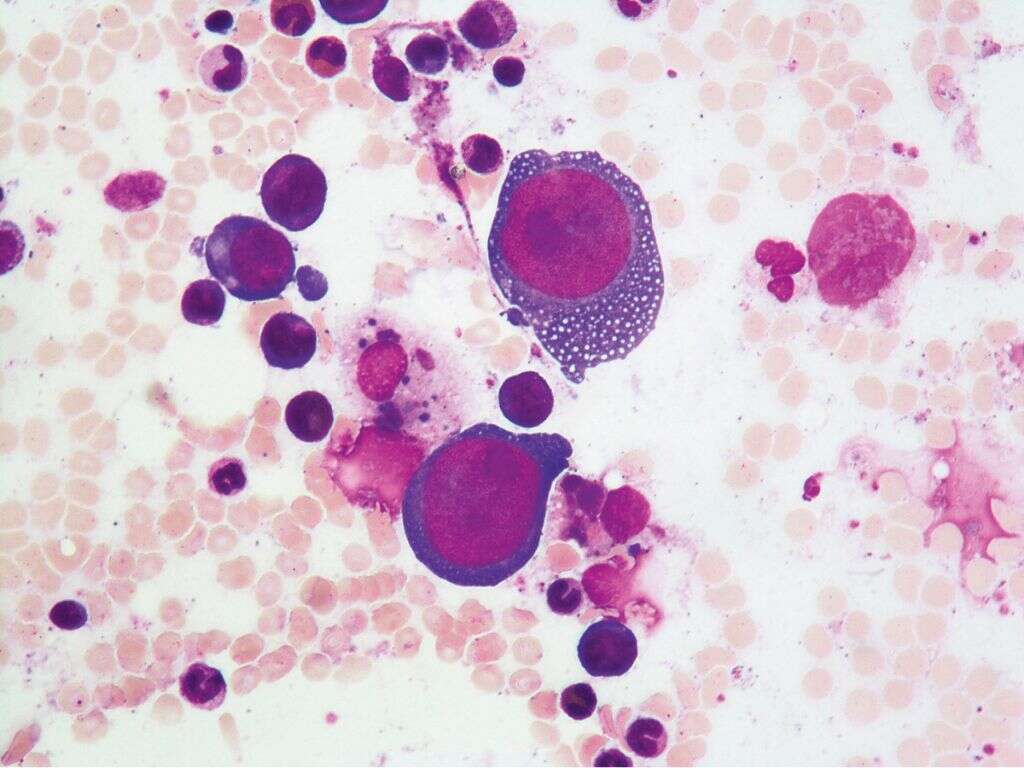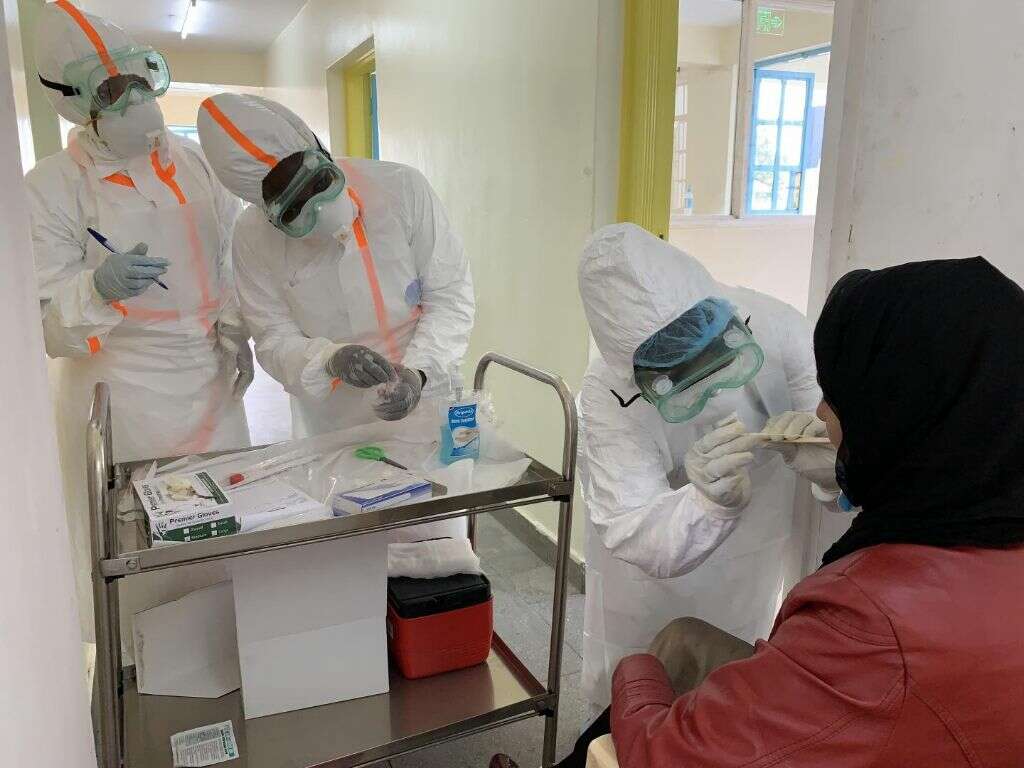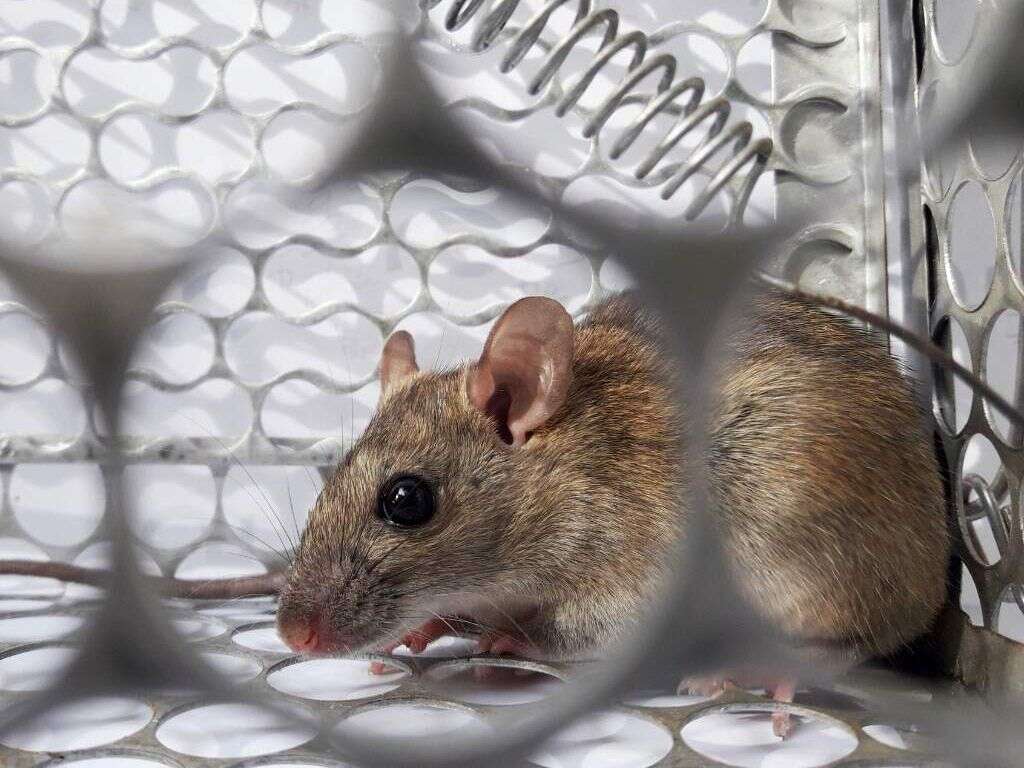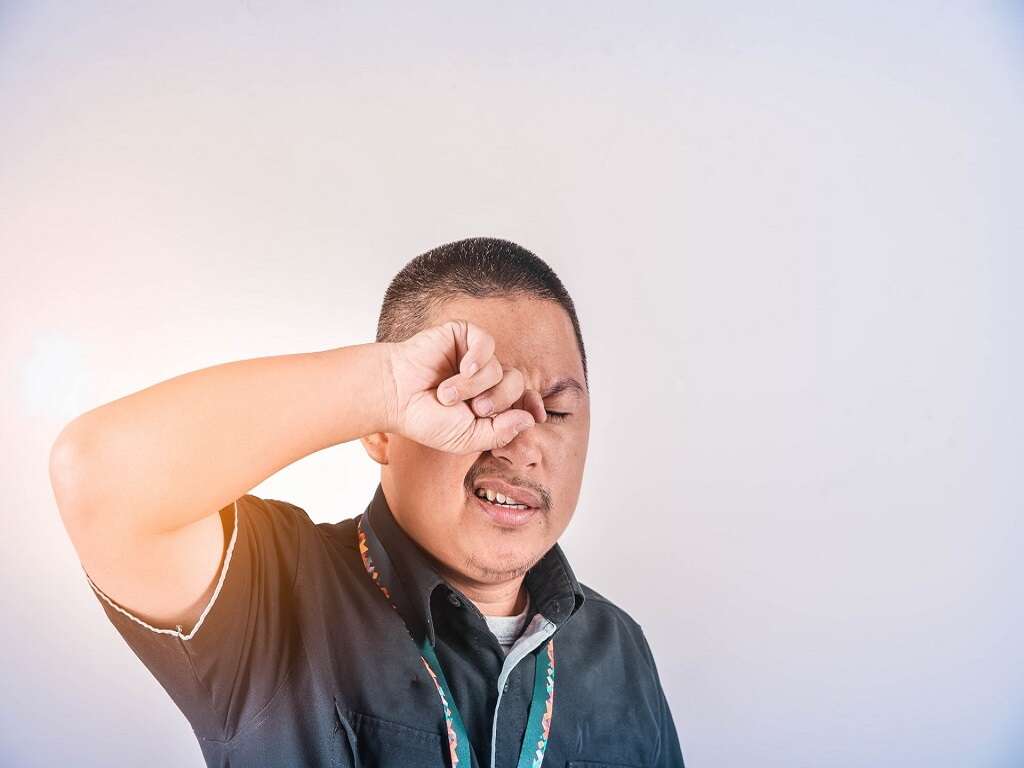10 RSV Symptoms in Babies
 Article Sources
Article Sources
- 1. 'RSV in Infants and Young Children.' Centers for Disease Control and Prevention, Centers for Disease Control and Prevention, 18 Dec. 2020, www.cdc.gov/rsv/high-risk/infants-young-children.html.
- 2. 'Respiratory Syncytial Virus (RSV).' Mayo Clinic, Mayo Foundation for Medical Education and Research, 9 Jan. 2021, www.mayoclinic.org/diseases-conditions/respiratory-syncytial-virus/symptoms-causes/syc-20353098.
- 3. 'Signs and Symptoms of RSV.' University of Utah Health, healthcare.utah.edu/the-scope/shows.php'shows=0/kdh1wa0c#:~:text=Symptoms of RSV are usually,coughing, sore, scratchy throat.
- 4. 'Appetite Slump in Toddlers.' Tufts Medical Center Community Care, hhma.org/healthadvisor/pa-bappetit-hhg/.
- 5. 'Default - Stanford Children's Health.' Stanford Children's Health - Lucile Packard Children's Hospital Stanford, www.stanfordchildrens.org/en/topic/default?id=behavior-changes-90-P02663.
- 6. JG;, Church NR;Anas NG;Hall CB;Brooks. 'Respiratory Syncytial Virus-Related Apnea in Infants. Demographics and Outcome.' American Journal of Diseases of Children (1960), U.S. National Library of Medicine, pubmed.ncbi.nlm.nih.gov/6702769/.
- 7. 'Apnea.' What to Expect and What You Can Do to Prevent Complications, www.nationwidechildrens.org/conditions/apnea.
- 8. NHS Choices, NHS, www.gosh.nhs.uk/conditions-and-treatments/general-medical-conditions/pneumonia/.
- 9. Bellieni, Carlo Valerio. 'Pain Assessment in Human Fetus and Infants.' The AAPS Journal, Springer US, Sept. 2012, www.ncbi.nlm.nih.gov/pmc/articles/PMC3385812/.
- 10. 'AboutKidsHealth.' SickKids AboutKidsHealth, www.aboutkidshealth.ca/article?contentid=896&language=english.
Babies have fragile immune systems, and getting sick is part of how they get stronger. Most children will have Respiratory Syncytial Virus (RSV) at least once by the time they turn two.2‘Respiratory Syncytial Virus (RSV).’ Mayo Clinic, Mayo Foundation for Medical Education and Research, 9 Jan. 2021, www.mayoclinic.org/diseases-conditions/respiratory-syncytial-virus/symptoms-causes/syc-20353098. RSV is usually a mild illness, but in rare cases, it can be dangerous. Premature, very young or already unhealthy babies can be particularly vulnerable.
Adults infected with RSV sometimes show no symptoms at all, but luckily, babies almost always present with symptoms. By watching an infant for these signs, parents and doctors can monitor RSV and make sure the baby recovers safely.2‘Respiratory Syncytial Virus (RSV).’ Mayo Clinic, Mayo Foundation for Medical Education and Research, 9 Jan. 2021, www.mayoclinic.org/diseases-conditions/respiratory-syncytial-virus/symptoms-causes/syc-20353098.
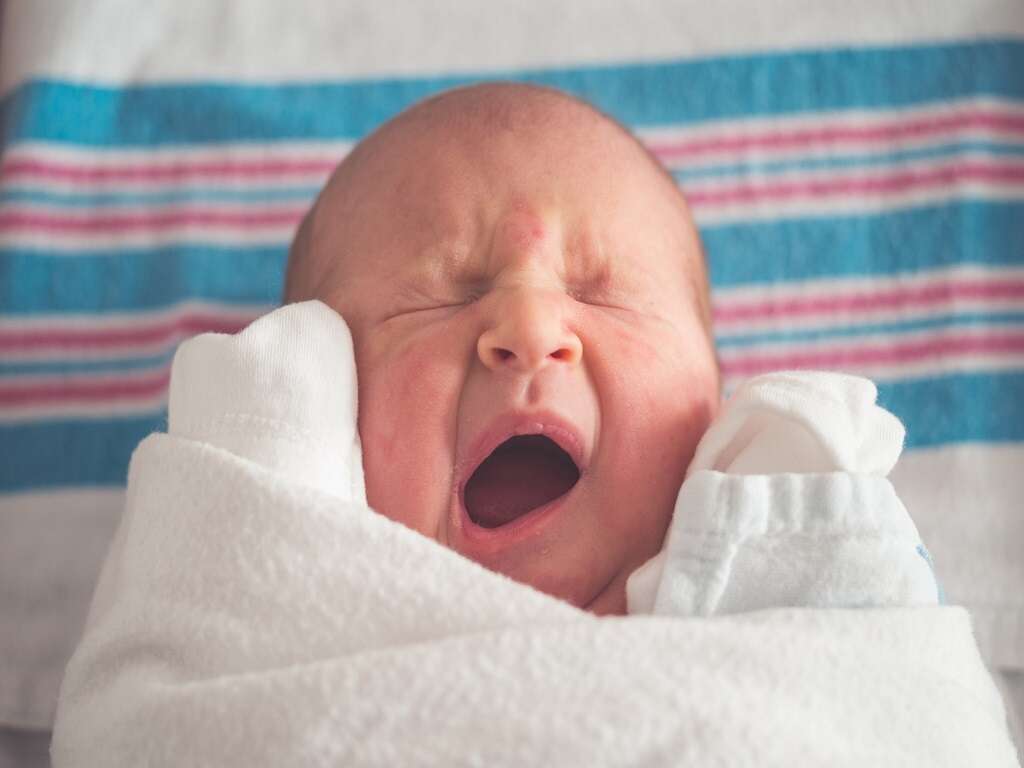
1. Runny Noses
Runny noses aren't uncommon for babies, but a runny nose caused by RSV will have far more mucus than usual. A pediatrician may use samples of the mucus to test for RSV. Using a bulb sucker to clear the baby's nose is an important task that can help them breathe more easily. A cool-mist humidifier can also be beneficial.3‘Signs and Symptoms of RSV.’ University of Utah Health, healthcare.utah.edu/the-scope/shows.php’shows=0/kdh1wa0c#:~:text=Symptoms of RSV are usually,coughing, sore, scratchy throat.
An RSV infection usually starts off mild, with symptoms getting worse over the next few days. Catching and monitoring early symptoms can help parents and doctors know when a baby needs more help.1‘RSV in Infants and Young Children.’ Centers for Disease Control and Prevention, Centers for Disease Control and Prevention, 18 Dec. 2020, www.cdc.gov/rsv/high-risk/infants-young-children.html.
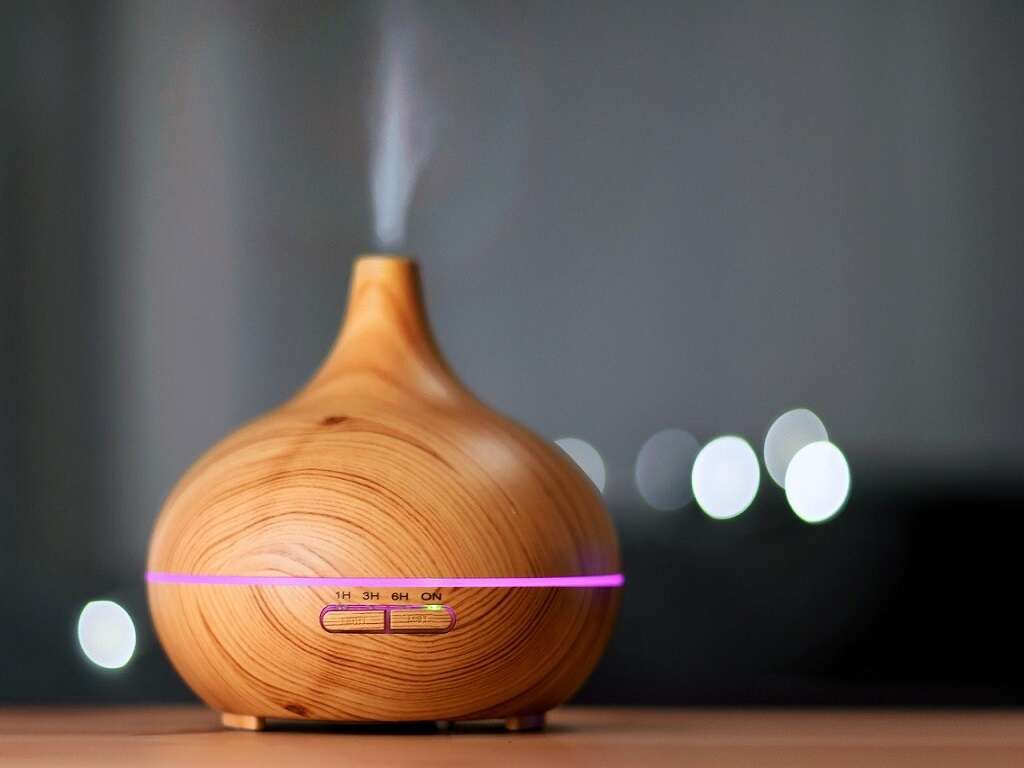
2. Decrease in Appetite
It's normal for a baby's appetite to change over time. At around one year, growth slows down and many children start turning up their noses at mealtimes. Low hunger isn't necessarily cause for concern, as long as the child isn't losing weight and they seem otherwise healthy.4‘Appetite Slump in Toddlers.’ Tufts Medical Center Community Care, hhma.org/healthadvisor/pa-bappetit-hhg/.
However, a sudden dip in hunger alongside other symptoms is a good reason to contact a pediatrician. RSV often shows up in the early stages as a runny nose and low appetite.1‘RSV in Infants and Young Children.’ Centers for Disease Control and Prevention, Centers for Disease Control and Prevention, 18 Dec. 2020, www.cdc.gov/rsv/high-risk/infants-young-children.html.
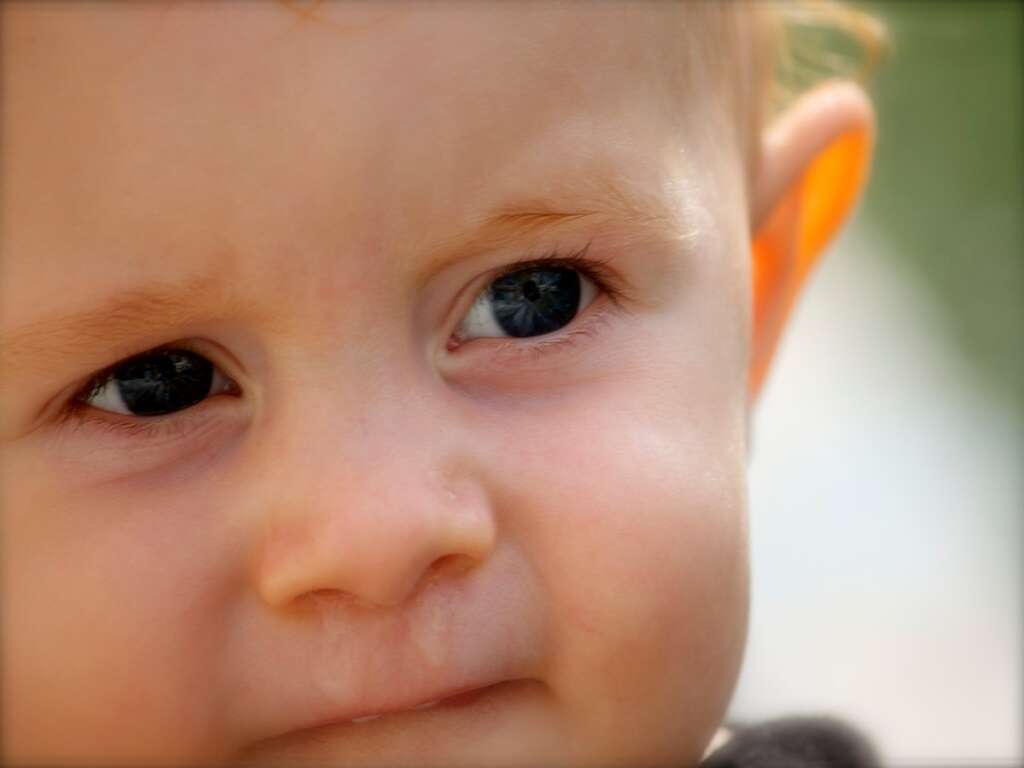
3. Irritability
A sick baby is often a cranky baby. The discomfort of RSV can cause a usually mellow baby to be fussy, annoyed and constantly crying.1‘RSV in Infants and Young Children.’ Centers for Disease Control and Prevention, Centers for Disease Control and Prevention, 18 Dec. 2020, www.cdc.gov/rsv/high-risk/infants-young-children.html.
It can be frustrating to have a baby who's still upset even when fed, diapered and snuggled. But for very young infants especially, their moods are an important clue to their health. The frequent crying and short fuse are indications that there could be further symptoms to look out for.5‘Default - Stanford Children’s Health.’ Stanford Children’s Health - Lucile Packard Children’s Hospital Stanford, www.stanfordchildrens.org/en/topic/default?id=behavior-changes-90-P02663.
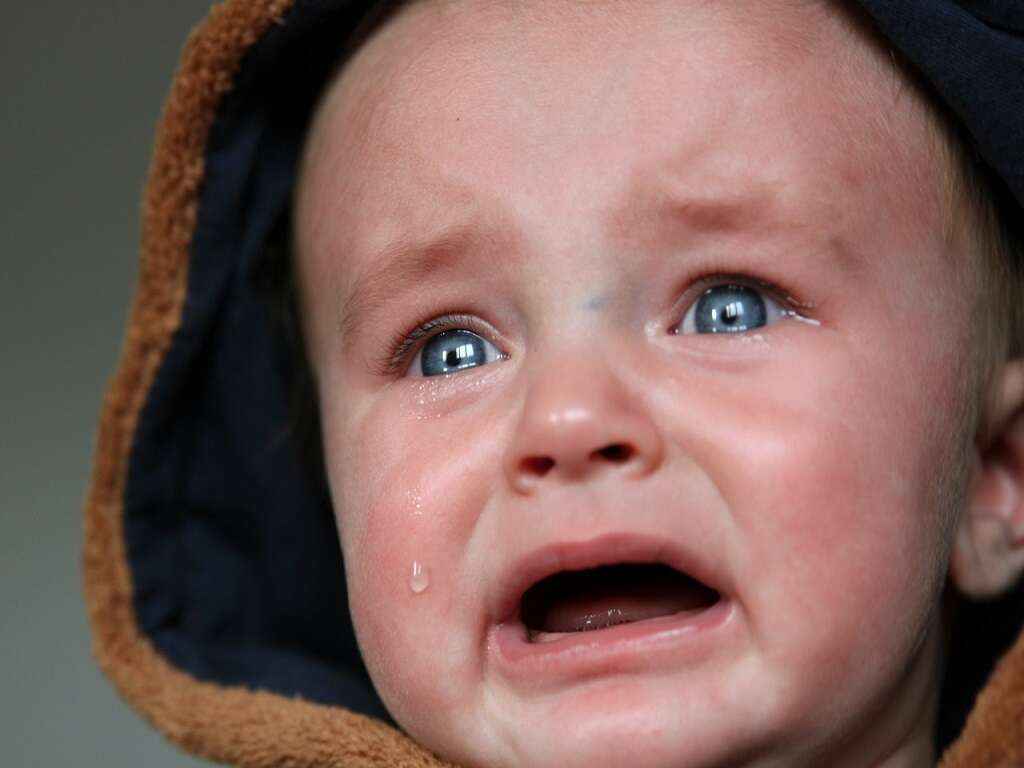
4. Low Activity
A parent can monitor their baby's health by noticing when their infant is particularly sluggish. Babies with RSV may sleep longer than usual and struggle to wake up. When awake, a baby may not respond to sounds and sights that would normally interest them.5‘Default - Stanford Children’s Health.’ Stanford Children’s Health - Lucile Packard Children’s Hospital Stanford, www.stanfordchildrens.org/en/topic/default?id=behavior-changes-90-P02663.
A baby with RSV may only show a few signs of illness, including lethargy. But there are further symptoms that could indicate that the infection could be more serious.2‘Respiratory Syncytial Virus (RSV).’ Mayo Clinic, Mayo Foundation for Medical Education and Research, 9 Jan. 2021, www.mayoclinic.org/diseases-conditions/respiratory-syncytial-virus/symptoms-causes/syc-20353098.
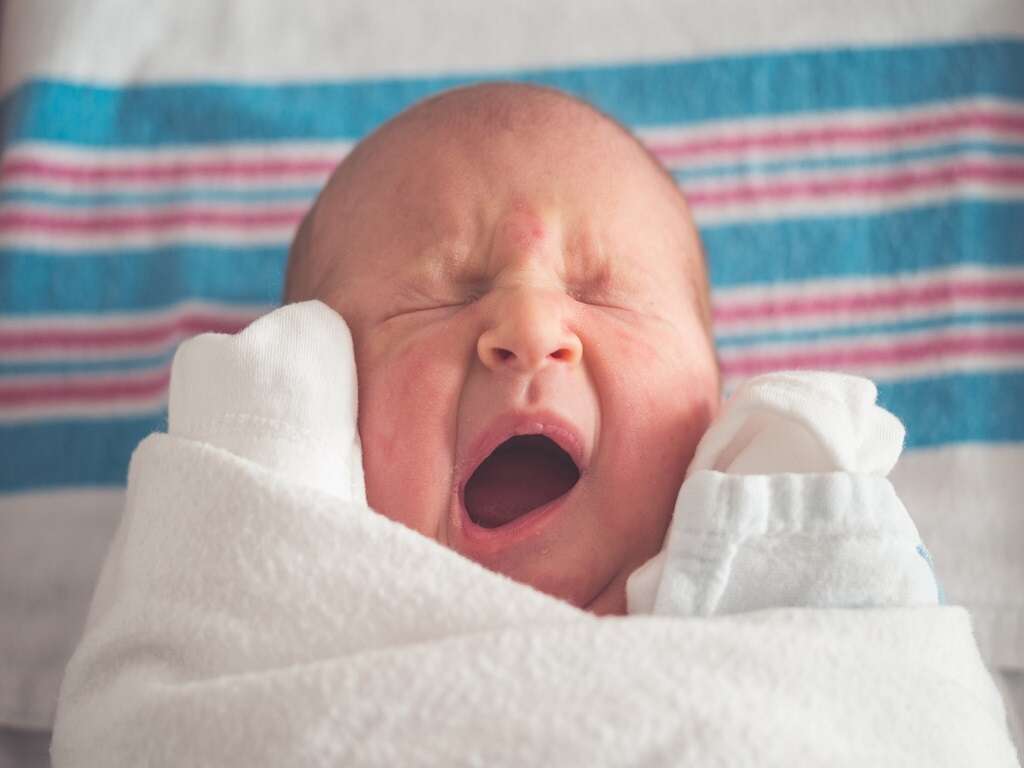
5. Cough
A persistent dry cough and runny nose could indicate that a child has either RSV or other viral infections like the common cold, but either way, it's a good time to check in with the baby's regular doctor.
An important thing to watch for is if the cough is extremely frequent, intense or accompanied by wheezing. If a baby makes a high-pitched sound when they breathe out, that can indicate a more severe infection.2‘Respiratory Syncytial Virus (RSV).’ Mayo Clinic, Mayo Foundation for Medical Education and Research, 9 Jan. 2021, www.mayoclinic.org/diseases-conditions/respiratory-syncytial-virus/symptoms-causes/syc-20353098.

6. Pauses In Breathing
Apnea is when someone unexpectedly stops breathing for twenty seconds or longer. Fewer than one in five babies with RSV will experience apnea. Premature and very young babies are at the highest risk, and having apnea during an RSV infection doesn't usually lead to breathing problems later in life.6JG;, Church NR;Anas NG;Hall CB;Brooks. ‘Respiratory Syncytial Virus-Related Apnea in Infants. Demographics and Outcome.’ American Journal of Diseases of Children (1960), U.S. National Library of Medicine, pubmed.ncbi.nlm.nih.gov/6702769/.
A doctor may recommend medication to help the baby breathe or, in extreme cases, hospital monitoring. While it can be scary, apnea associated with RSV infection is a temporary and treatable symptom.7‘Apnea.’ What to Expect and What You Can Do to Prevent Complications, www.nationwidechildrens.org/conditions/apnea.
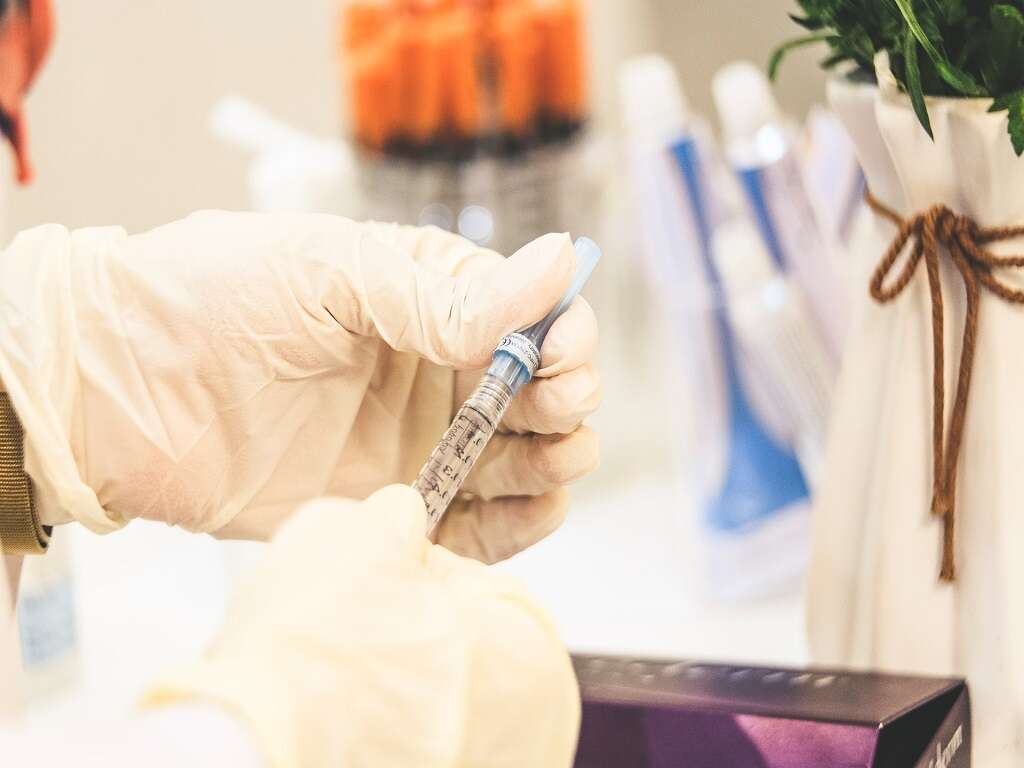
7. Fever
If other symptoms are present it's important not to rule out RSV because of the lack of a fever, as not all babies with RSV have one.1‘RSV in Infants and Young Children.’ Centers for Disease Control and Prevention, Centers for Disease Control and Prevention, 18 Dec. 2020, www.cdc.gov/rsv/high-risk/infants-young-children.html. A low-grade fever does occur some of the time and can be managed at home.
However, if a baby has a high temperature, it's often an indication of a more serious infection. Parents should consult with a doctor if a baby has a high fever or is exhibiting other symptoms.2‘Respiratory Syncytial Virus (RSV).’ Mayo Clinic, Mayo Foundation for Medical Education and Research, 9 Jan. 2021, www.mayoclinic.org/diseases-conditions/respiratory-syncytial-virus/symptoms-causes/syc-20353098.

8. Labored Breathing
A little breathing difficulty is to be expected with RSV and can be managed by clearing the baby's nose and using a humidifier.3‘Signs and Symptoms of RSV.’ University of Utah Health, healthcare.utah.edu/the-scope/shows.php’shows=0/kdh1wa0c#:~:text=Symptoms of RSV are usually,coughing, sore, scratchy throat. But if the baby is breathing rapidly, wheezing loudly or their chest muscles are visibly pulling in with each breath, that can be a sign that the infection is more serious.2‘Respiratory Syncytial Virus (RSV).’ Mayo Clinic, Mayo Foundation for Medical Education and Research, 9 Jan. 2021, www.mayoclinic.org/diseases-conditions/respiratory-syncytial-virus/symptoms-causes/syc-20353098.
RSV can sometimes cause pneumonia, a dangerous infection of the lungs. Labored breathing and a high fever are good reasons to see a doctor.8NHS Choices, NHS, www.gosh.nhs.uk/conditions-and-treatments/general-medical-conditions/pneumonia/.
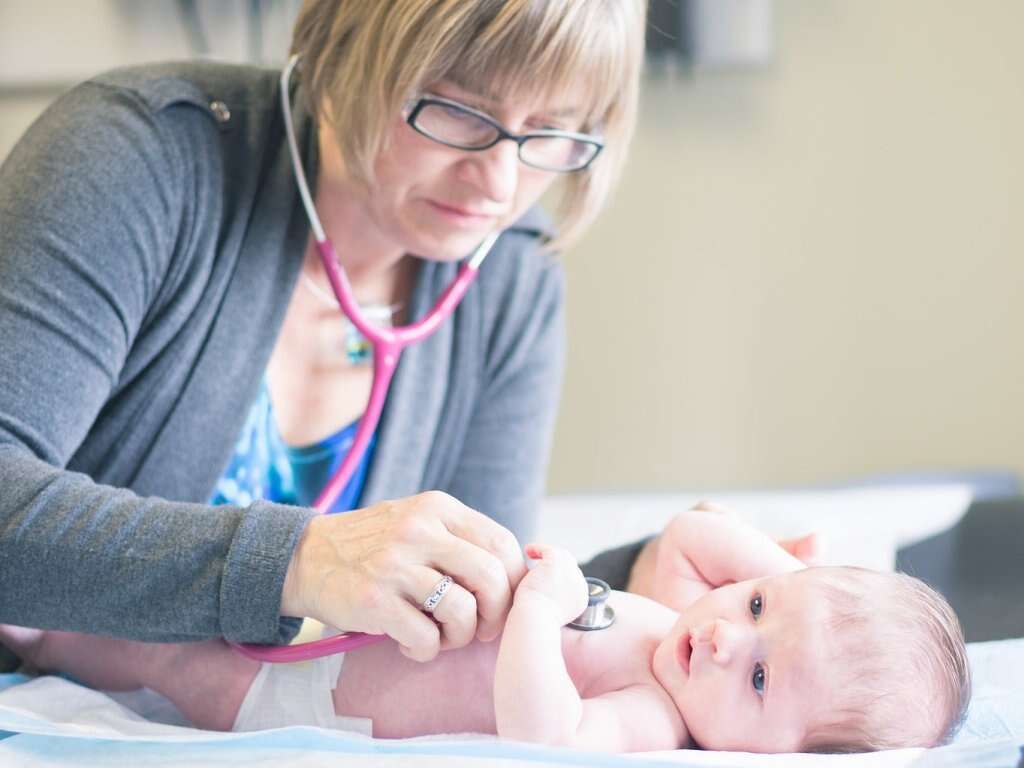
9. Chest pain
Chest pain is a sign that an RSV infection could have progressed to pneumonia. If an infant's chest is hurting alongside labored breathing, the caregiver should seek prompt medical attention.8NHS Choices, NHS, www.gosh.nhs.uk/conditions-and-treatments/general-medical-conditions/pneumonia/.
Infants aren't able to talk about their symptoms, but there are signs that can help a parent determine if their baby might be hurting. If the baby cries in intense, inconsolable bursts, has stiff arms and legs and grimaces or cries when touched, it's good to see a doctor.9Bellieni, Carlo Valerio. ‘Pain Assessment in Human Fetus and Infants.’ The AAPS Journal, Springer US, Sept. 2012, www.ncbi.nlm.nih.gov/pmc/articles/PMC3385812/.
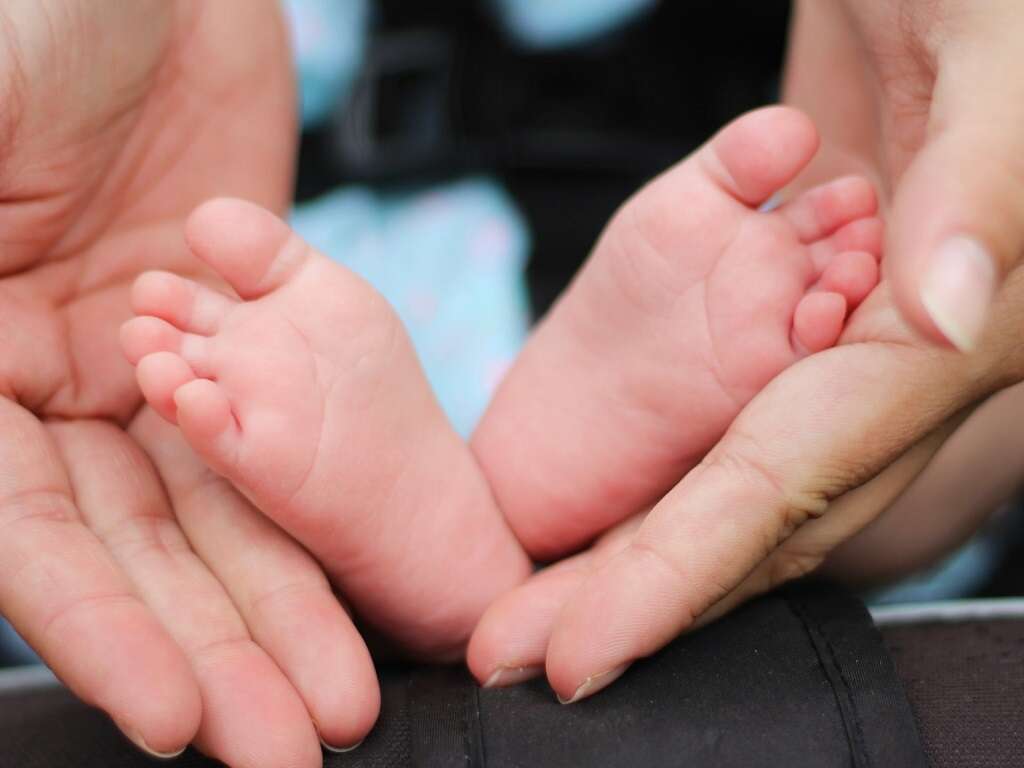
10. Bluish Skin
A blue tint in a baby's skin is a symptom of serious or advanced RSV infection.2‘Respiratory Syncytial Virus (RSV).’ Mayo Clinic, Mayo Foundation for Medical Education and Research, 9 Jan. 2021, www.mayoclinic.org/diseases-conditions/respiratory-syncytial-virus/symptoms-causes/syc-20353098. It can be seen more easily in areas with thinner skin, such as the lips, and can mean the baby isn't getting enough oxygen.
It's important not to panic. The baby's doctor should be informed if the baby's skin has turned blue. If bluish skin lasts longer than a minute or is accompanied by fainting, the caregiver should call emergency services.10‘AboutKidsHealth.’ SickKids AboutKidsHealth, www.aboutkidshealth.ca/article?contentid=896&language=english.





